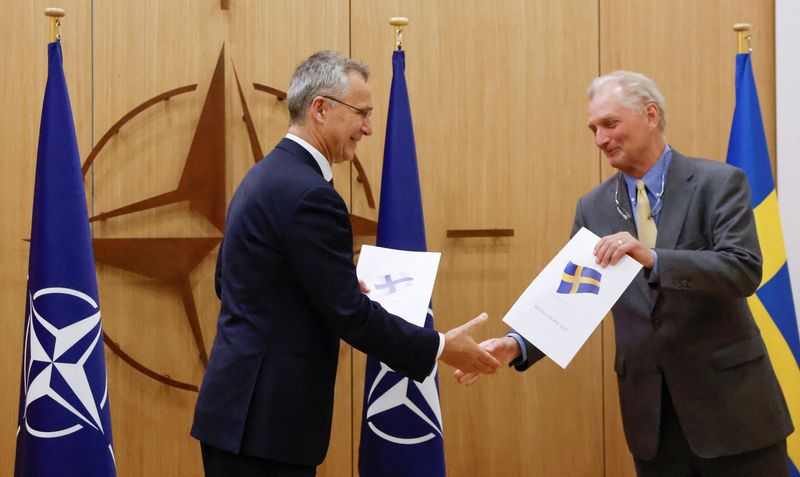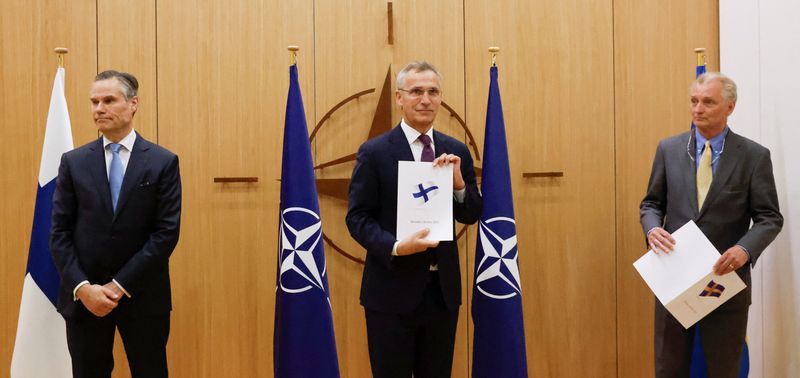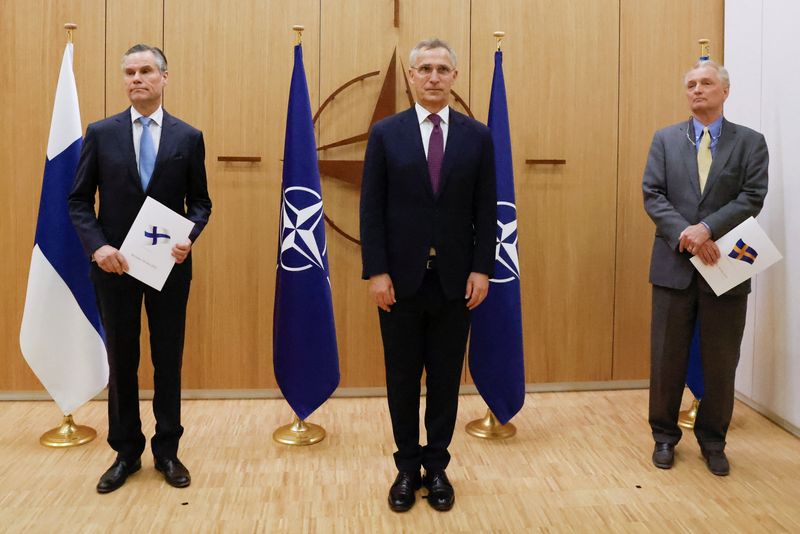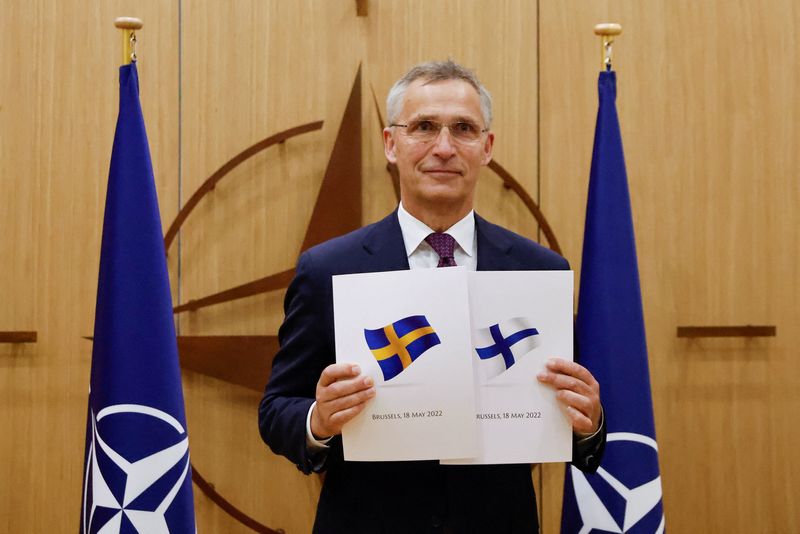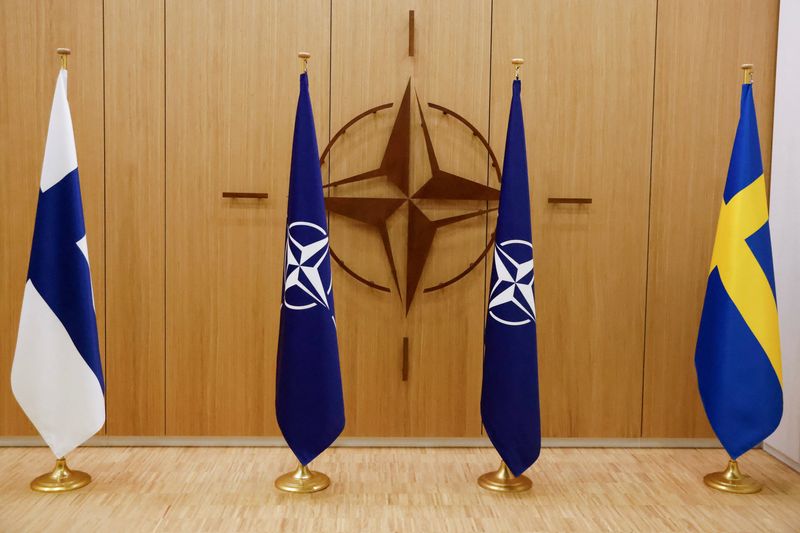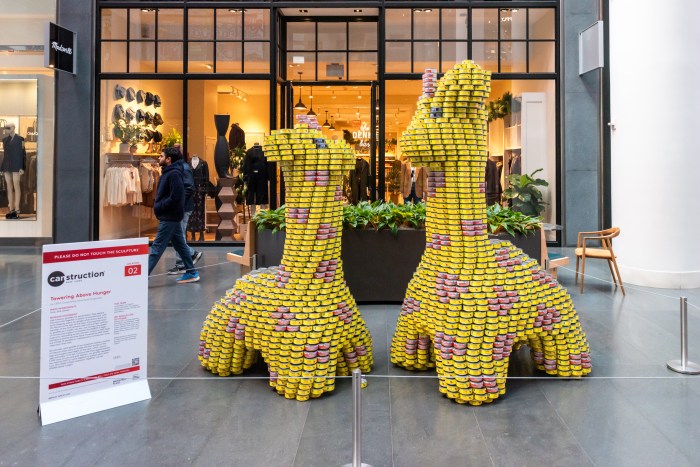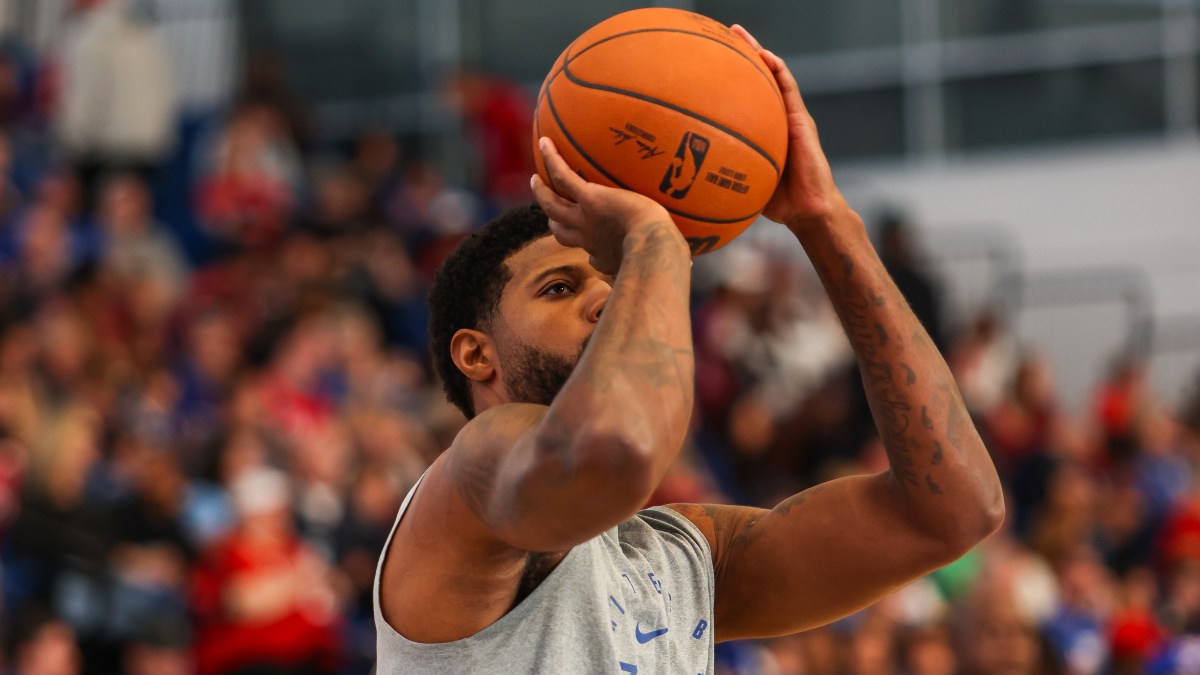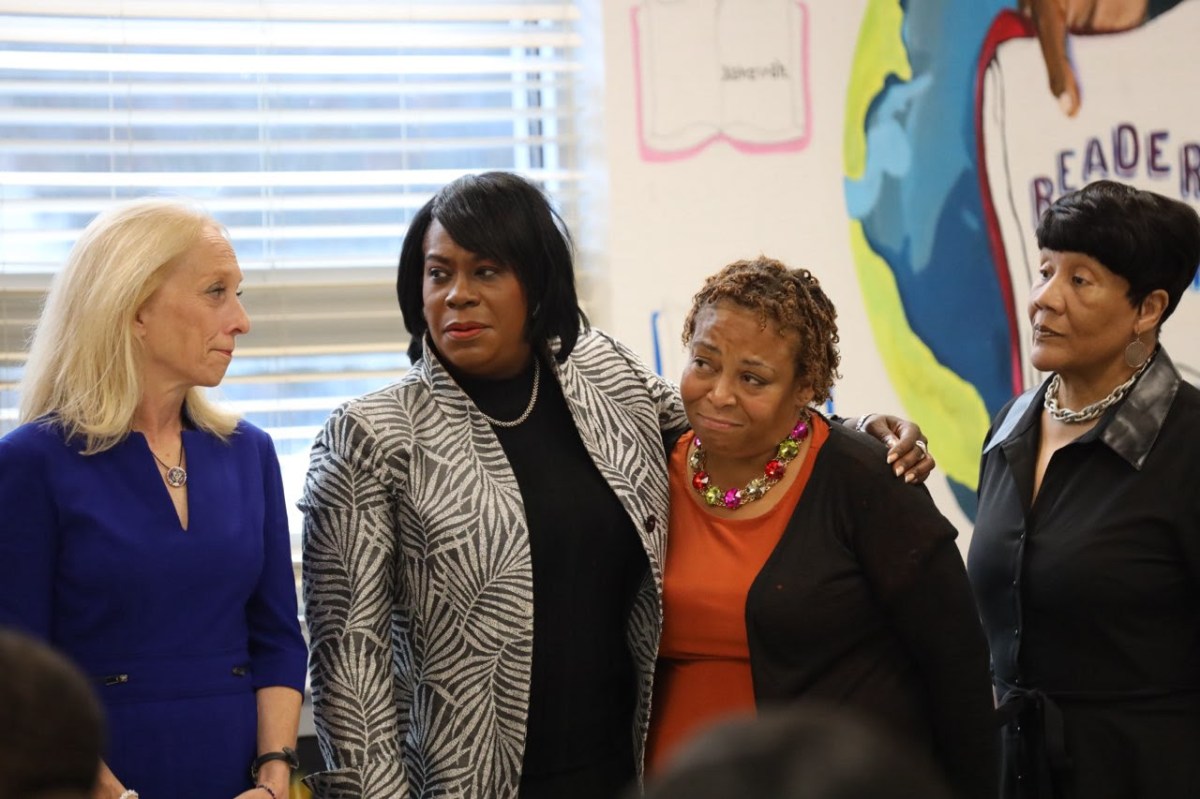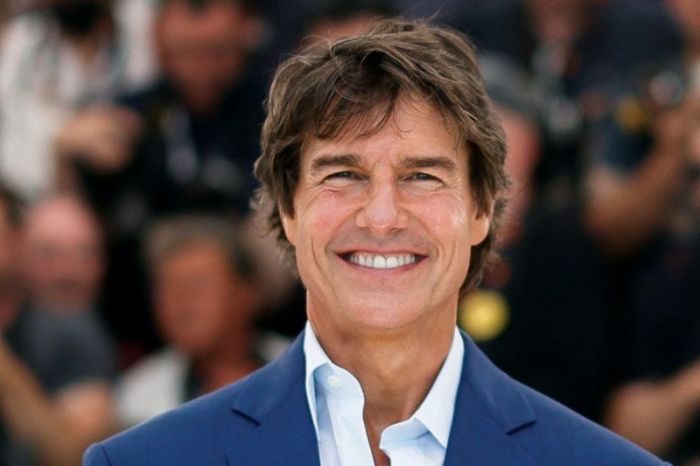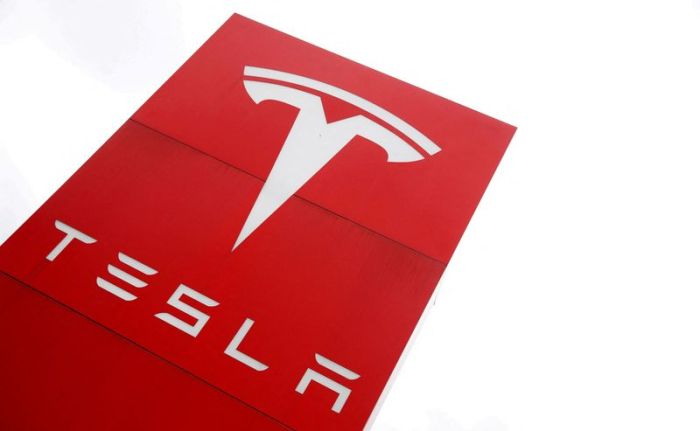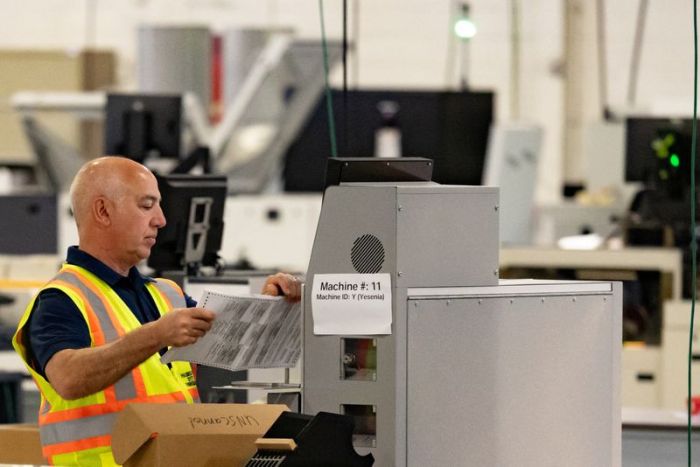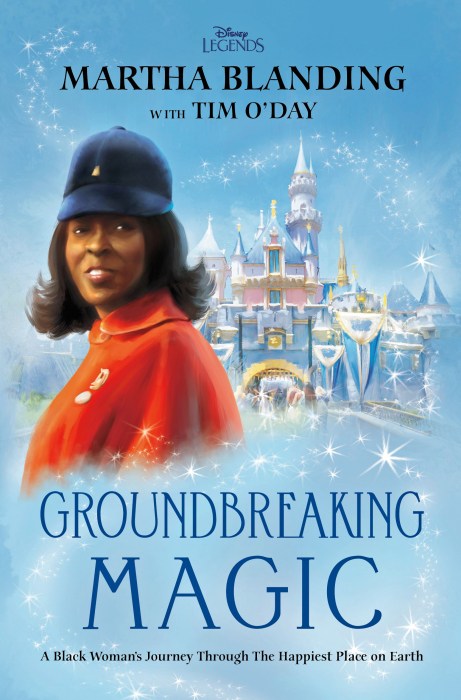BRUSSELS/ANKARA (Reuters) -Finland and Sweden formally applied to join the NATO alliance on Wednesday, a decision spurred by Russia’s invasion of Ukraine, but face objections from Turkey to an accession process that is expected to take only a few weeks.
Neutral throughout the Cold War, Sweden’s and Finland’s decision to join NATO is one of the most significant changes in Europe’s security architecture in decades, not least because Finland shares a 1,300-km (810-mile) border with Russia.
It also reflects a shift in public opinion in the Nordic region since Russia’s Feb. 24 invasion of Ukraine.
“This is a historic moment which we must seize,” NATO Secretary-General Jens Stoltenberg said at a short ceremony at NATO headquarters in which the Swedish and Finnish ambassadors to the alliance handed over their application letters, each in a white folder embossed with their national flag.
“I warmly welcome requests by Finland and Sweden to join NATO. You are our closest partners, and your membership in NATO will increase our shared security,” Stoltenberg said. The alliance believes the accession of Finland and Sweden will hugely strengthen it in the Baltic Sea.
With the applications formally submitted, the Nordic countries and their many backers now face uncertain months where any resistance to their bids must be overcome, with all 30 of NATO’s members needing to approve the enlargement.
Ratification by all allied parliaments could take up to a year, diplomats say.
Turkey has voiced reservations, saying the two countries harbour individuals linked to groups it deems terrorists and hitting out at arms export embargoes imposed on it after its Syria incursion in 2019.
Turkish state broadcaster TRT Haber reported this week that Sweden and Finland had not granted approval for the repatriation of 33 people that Turkey requested and President Tayyip Erdogan doubled down on criticism on Wednesday.
“NATO expansion is only meaningful for us in proportion to the respect that will be shown to our sensitivities,” he said in a speech to lawmakers from his ruling AK party.
“So you won’t give us back terrorists but you ask us for NATO membership? NATO is an entity for security, an organisation for security. Therefore, we cannot say ‘yes’ to this security organisation being deprived of security.”
WORK THROUGH
Sweden’s and Finland’s leaders, surprised by the objections raised by Turkey after what they have characterised as broadly supportive discussions with Ankara in the lead-up to the applications, have held out hope differences can be ironed out.
Most NATO members have been quick to express their support for membership for the two Nordic countries and Stoltenberg said he thought the issues could be resolved.
“We are determined to work through all issues and reach rapid conclusions,” Stoltenberg said, noting strong support from all other allies.
Seeking to move the membership process along, Sweden’s defence minister has already headed to Washington and will be followed by Swedish Prime Minister Magdalena Andersson and Finnish President Sauli Niinisto later this week.
The countries hope speedy ratification by the United States, the alliance’s premier power, will help smooth their path to membership with the White House having said it is confident any obstacles can be overcome.
The decision to seek a place under the NATO umbrella represents a setback for Moscow, with the war in Ukraine triggering the very kind of enlargement of the alliance on Russia’s borders that it took to arms to prevent.
So far, Moscow’s response has been unexpectedly muted, having previously warned of steps of a “military-technical” nature and that it could deploy nuclear weapons in its European exclave of Kaliningrad were the countries to join.
President Vladimir Putin said on Monday that Swedish and Finnish NATO membership posed no threat to Russia, but cautioned that Moscow would respond if the alliance boosted military infrastructure in the two countries.
(Additional reporting by Daren Butler in Istanbul and Marine Strauss in Brussels; writing by Robin Emmott and Niklas Pollard; editing by David Evans and Nick Macfie)

